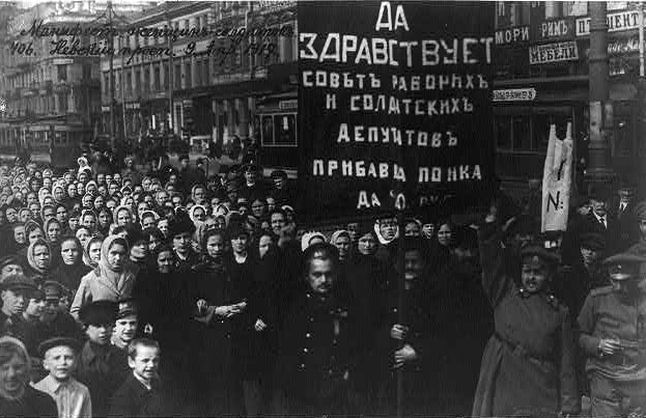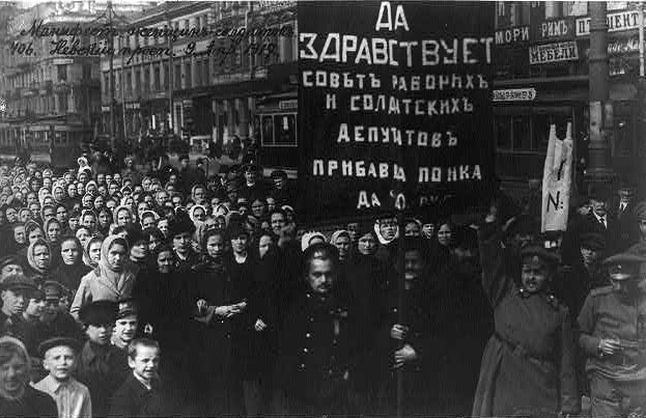Revolution Remembrance in Russia: Can History Come Full Circle?

2017 marks the one-hundredth anniversary of two Russian revolutions. The February Revolution began when riots and strikes over the scarcity of food erupted in St. Petersburg. Russians had lost faith in their government, the economy was horrendous and corruption was rampant. Demonstrators took to the streets and soon Nicholas formally abdicated his throne, effectively ending nearly four centuries of czarist rule in Russia.
The February Revolution was followed by the October Revolution. This revolution precipitated the collapse of the Provisional Government and led to the creation of the Russian Soviet Federative Socialist Republic ruled by Vladimir Lenin and Lev Kamanev.
According to the Julian calendar, the February Revolution anniversary falls in March and the October Revolution anniversary is quickly approaching.
This year’s anniversaries have proven problematic for the Kremlin. The regime is already feeling uncomfortable with the thought of the slightest social unrest in Russia let alone the prospect of history coming full circle. The idea of people chanting calls for a violent overthrow of government in the streets of the capital is nothing short of a nightmare. Now they must figure out how to help Russians interpret and commemorate these century-old events without creating unrest and upheaval.
The Kremlin knows what modern-day revolutions can look like. The 2003 Revolution of Roses in Georgia, the Orange Revolution in Ukraine in 2004, the 2011 and 2012 protests in Moscow, and the Revolution of Dignity in Ukraine in 2014, all were an expression of resistance against the Kremlin itself or Kremlin-backed governments.
These revolutions represent everything that the Kremlin dreads – the disruption of stability, people coming together with ideas, and the power of the people. With the Presidential election only six months away and a possible opposition candidate Alexei Navalny who is gathering record-breaking crowds at his rallies all over Russia, praising any form of social unrest, even historic versions, may prove hazardous for the regime.
Putin has consistently used Russian history to help create a sense of national destiny and unity in Russia. However, these two anniversaries are not a road he is willing to go down. Therefore, the Kremlin has tried to play down the revolutionary character of the 1917 events in order not to deepen the divisions in the Russian society. The few times Putin has mentioned the historical events, he focused on the havoc they wreaked as opposed to the stability and unity of which he considers himself the chief protector. The 2017 celebrations will be completely controlled, including state-sponsored and state-controlled events such as exhibitions, films, conferences and publications, all aiming to impose the Kremlin’s interpretation of the revolution upon Russia’s population.
Russian historian Nikita Sokolov once told the New York Times that “… the impulse of the revolution was social justice. A country with such inequality can’t celebrate this.” Indeed, when the entire state system protects an army of Kremlin billionaire cronies, the revolution is a skeleton the regime would rather keep in the closet than on the mind of pensioners living on $220 a month.

Top